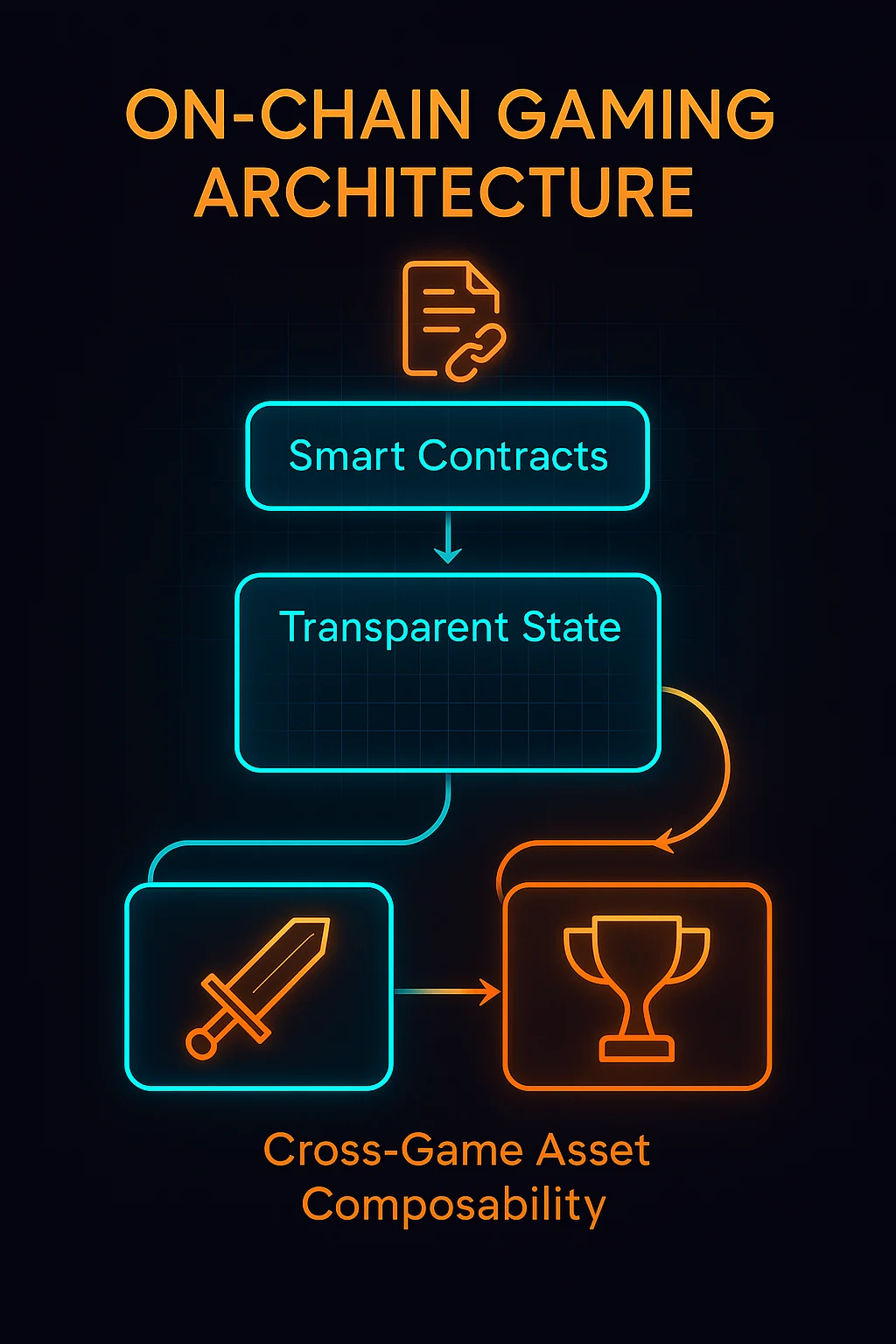On-Chain Gaming
On-Chain Gaming: Fully Decentralized Games
On-chain gaming runs game logic entirely on blockchain networks rather than traditional servers. It’s like having board games where the rules are enforced by mathematics instead of human referees.
On-chain gaming executes all game logic, state management, and interactions through smart contracts on blockchain networks. Unlike traditional games with centralized servers, on-chain games operate through decentralized infrastructure that players cannot manipulate.
How On-Chain Gaming Works
Smart contract logic handles all game rules, player actions, and state transitions through deterministic code that executes identically for all players.
Transparent mechanics make all game rules publicly visible and verifiable, preventing hidden advantages or manipulation by game operators.
Composable assets enable game items and characters to be used across different games and applications that support the same standards.

Real-World Examples
- Chess on-chain with provably fair random events and permanent game records
- Strategy games where all moves and outcomes are cryptographically verifiable
- Trading card games with truly scarce digital cards that work across multiple game implementations
Why Beginners Should Care
Provably fair gameplay eliminates concerns about rigged random number generation or hidden advantages for certain players.
Asset portability allows taking game items between different implementations and derivative games built by various developers.
Permanent records of achievements and gameplay history that persist even if original game developers stop supporting their games.
Related Terms: Smart Contract, Autonomous World, NFT Gaming, Verifiable Randomness
